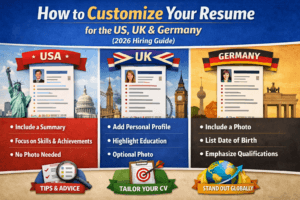The modern global landscape demands professionals equipped with innovative thinking and adaptability. Are you ready to future-proof your career?
One of the most effective ways to do so is to study in global innovation hubs. Immersing yourself in environments where academia, industry, and government converge can provide you with the skills, networks, and mindset needed to thrive in the 21st-century workforce. These “Innovation Triangles,” found in locations like Singapore, the Netherlands, and Scandinavia, offer unparalleled opportunities for ambitious students. This post by IMFS explores how these hubs are shaping the future of global careers, especially if you consider beginning your study abroad adventure. Discover how a strategic study in global innovation hubs can be your launchpad to success. Learn how studying in Singapore’s tech scene can shape your career.

How do universities in the Netherlands (e.g., Eindhoven) collaborate with tech companies?
The Netherlands, and Eindhoven in particular, represents a powerful model for university-industry collaboration. This is particularly beneficial to international students looking to begin their path to study engineering in the Netherlands. Universities like Eindhoven University of Technology (TU/e) maintain strong ties with leading technology companies, fostering an environment of shared learning and innovation. These relationships are often formalised through joint research projects, shared facilities, and invaluable student internship opportunities.
These collaborative efforts are designed to keep the curriculum consistently relevant to the evolving needs of the tech industry. Consequently, this ensures that students are exposed to and trained on the most up-to-date technologies and methodologies. Students also gain hands-on experience by tackling real-world challenges with industry professionals, bridging the gap between theory and practice. Imagine working alongside professionals from Philips or ASML on projects related to high-tech systems, sustainable energy, or cutting-edge healthcare technologies.
Consequently, this immersive experience boosts international students’ employability and offers valuable insight into the world’s leading technology companies. Moreover, the Dutch government supports these partnerships through funding and strategic policies, creating a vibrant ecosystem of innovation. This strong support system makes the Netherlands a fertile ground for technological advancement and a prime location to study in global innovation hubs.
What makes Singapore an ‘Innovation Triangle’ for Asia?
Singapore’s status as Asia’s ‘Innovation Triangle’ comes from strong government support, thriving industries, and world-class universities. This combination creates a dynamic environment where innovation thrives, attracting students to study in global innovation hubs. The government drives this growth through major R&D investments and policies that welcome corporations and startups alike.
Universities like the National University of Singapore (NUS) and Nanyang Technological University (NTU) lead in cutting-edge research and skill development. They maintain strong industry partnerships, turning research into practical solutions and offering students valuable internships and networking opportunities. The dynamic intersection of academia and industry is critical to how studying in Singapore’s tech scene can shape your career. Singapore’s commitment to innovation also helps increase job prospects after studying at TU Delft in the Netherlands due to international recognition.
Singapore’s multicultural environment is another significant asset. It encourages a global mindset, helping international students broaden perspectives and develop cross-cultural skills valued by employers worldwide. This inclusive, globally focused environment—supported by strong government policies and top academic institutions—makes Singapore a leading hub for innovation and a top destination for students.
Which Scandinavian cities are best for students interested in startups and tech?
Scandinavia is a global leader in sustainable innovation, making it an appealing destination for students interested in technology and entrepreneurship. Several cities in the region serve as hubs for startups and tech, especially in green and sustainable fields. If you want to study in global innovation hubs focused on sustainability, these Scandinavian cities deserve your attention:
1) Stockholm, Sweden:
Often referred to as the “unicorn factory,” Stockholm boasts a highly vibrant startup ecosystem. It serves as home to globally recognized and successful companies such as Spotify and Klarna. This thriving environment creates abundant opportunities for students to engage with innovative businesses and learn from industry leaders. Universities in Stockholm, such as the KTH Royal Institute of Technology, offer top programs in engineering, computer science, and design. These programs help develop skilled professionals ready to support the local tech industry. For students aiming to study in global innovation hubs, Stockholm provides an unmatched environment of creativity and opportunity. It is especially ideal for those interested in innovation at Scandinavian universities.
2) Copenhagen, Denmark:
Copenhagen stands out as a leader in sustainable technology and urban planning. It focuses on green energy, smart cities, and life sciences. Moreover, this commitment to sustainability makes it ideal for students aiming to build a greener future. The Technical University of Denmark (DTU) is a top institution for engineering and technology, attracting international students passionate about innovation. In addition, DTU’s strong research programs and industry ties give students exceptional opportunities to join groundbreaking projects and develop key skills in sustainable technology.
3) Helsinki, Finland:
Helsinki offers a unique combination of creativity and technology. Known for its thriving design and gaming industries, it provides a dynamic environment for students interested in exploring the intersection of these fields. Moreover, Aalto University, formed by the merger of three leading Finnish universities, places a strong emphasis on interdisciplinary collaboration and entrepreneurship. Consequently, this makes it an appealing destination for students eager to create innovative solutions and launch their own ventures. In addition, the university’s focus on creativity and innovation equips students with the skills and mindset to succeed in today’s fast-changing tech world. For those interested in why Scandinavia is a leader in sustainable innovation, look no further than Helsinki.
What types of careers do these innovation hubs prepare you for?
Studying in these global innovation hubs equips students with the knowledge and skills necessary for a diverse array of future-oriented careers. The practical experience gained in these environments gives graduates a distinct advantage in the job market. The career paths they can pursue include:
- Research and Development: Graduates can contribute to cutting-edge research in fields such as artificial intelligence, biotechnology, and sustainable energy. They help in pushing the boundaries of scientific knowledge and developing innovative solutions to global challenges.
- Engineering and Technology: Graduates can design, develop, and implement innovative technological solutions across various industries, from developing advanced software systems to creating groundbreaking hardware technologies.
- Entrepreneurship: The entrepreneurial ecosystem in these hubs encourages graduates to launch their own startups and bring new products and services to market, fostering innovation and driving economic growth.
- Data Science and Analytics: Graduates can analyse complex data sets to identify trends, solve problems, and improve decision-making, helping businesses and organisations make more informed strategic choices.
- Consulting: Graduates can advise businesses on how to leverage technology and innovation to achieve their goals, helping them to stay ahead of the curve and maximise their potential.
- Policy and Government: Graduates can shape policies that promote innovation and economic growth, contributing to the development of a more competitive and prosperous society.
Conclusion
Ultimately, choosing to study in global innovation hubs provides a strong foundation for a fulfilling and impactful career, setting students up for success in a constantly changing global marketplace. It also serves as an excellent answer to why Scandinavia is a leader in sustainable innovation with real-world impact.
Are you ready to take the first step toward an exciting and impactful career? The expert counselling services at IMFS can help you navigate the complexities of studying abroad and find the perfect program in one of these global innovation hubs.
Contact IMFS today for a personalised consultation and discover how we can help you achieve your academic and professional goals.
FAQs
1. How do the costs (tuition + living) compare between Singapore, the Netherlands, and Scandinavia?
This is a crucial difference.
- Singapore is one of the most expensive options. Both tuition fees at top universities (NUS/NTU) and the cost of living are very high.
- The Netherlands: Has substantial tuition fees for non-EU students (often €15,000 – €25,000 per year for a Master’s). The cost of living is also high, especially housing in cities like Amsterdam and Eindhoven.
- Scandinavia: This is a mixed bag. Norway offers tuition-free education at public universities, but the cost of living is among the highest in the world. Denmark, Sweden, and Finland all charge significant tuition fees to non-EU students, and their cost of living is also very high.
2. Are English-taught Master’s programs widely available, and can I get a job after graduation without speaking the local language?
- Programs: Yes, in the Netherlands and Scandinavia, there is an extremely high availability of Master’s programs taught entirely in English. Singapore’s primary language of instruction is English.
- Jobs: This is the key difference. In the Netherlands and Singapore, you can realistically find a job in the tech sector, especially at large international companies, using only English. In Scandinavia, while not impossible, finding a job without speaking the local language (Swedish, Danish, etc.) is significantly more difficult, even in the tech industry.
3. What are the post-study work (PSW) visa options in these regions for graduates?
This is a major advantage for all three. After graduating, you are given a “search year” to find a job:
- The Netherlands: Offers the “Orientation Year” (Zoekjaar) visa, which gives you one year to find a skilled job. This is a very popular and straightforward program.
- Scandinavia: Policies vary, but all are favourable. Sweden offers a 12-month permit to seek work, Denmark offers a 2-year job-seeking period for Master’s/PhD graduates, and Norway offers a 1-year permit.
- Singapore: Offers a Long-Term Visit Pass (LTVP) for up to one year to graduates of specified institutions, allowing them to find a job.
4. How difficult is it to find student housing in these “hub” cities?
This is one of the biggest challenges for all these locations. Cities like Stockholm, Copenhagen, Eindhoven, Amsterdam, and Singapore are all experiencing severe housing shortages. You cannot wait until you arrive. You must apply for university-provided housing (which is often limited and distributed by lottery) the moment you are eligible. If you have to find private housing, you must start your search months in advance and be very cautious of scams.
5. The blog mentions industry collaboration (e.g., TU/e and Philips). How does this practically help me get a job?
It helps in three direct ways:
- Internships & Thesis Projects: Companies like ASML and Philips directly offer Master’s thesis projects and internships to students. This is your “in” and often acts as a 6-month-long job interview.
- Career Fairs & Guest Lectures: Company recruiters are a constant presence on campus, so you have direct access to them for networking.
- Relevant Curriculum: The courses are often designed with these companies to teach the exact skills they are looking to hire for, making you a perfect-fit candidate.
6. What is the academic culture and work-life balance like in these regions?
They are very different, and this is a key factor in your decision.
- Singapore: The academic culture is known for being highly competitive, fast-paced, and academically rigorous, with a “work hard, play hard” mentality similar to top US universities.
- Netherlands & Scandinavia: The culture is famously non-hierarchical and collaborative. You will call your professors by their first names. There is a strong emphasis on group projects, critical thinking, and maintaining a healthy work-life balance, which is a core part of their society.
7. How “real” is the startup scene for international students in Stockholm or Helsinki?
It is very real, but it has pros and cons.
- Pro: Startups are more willing to hire based on “skill” rather than “experience” and are often more flexible. They are a great place to learn quickly.
- Con: They may have less capacity to sponsor visas compared to a large corporation. They are also more likely to require at least basic local language skills to fit into the small team culture. A role in a “unicorn” like Spotify is just as competitive as a job at Google.
8. What are the key advantages of studying in Singapore compared to the Netherlands or Scandinavia?
Choose Singapore if your primary goals are:
- Access to Asia-Pacific (APAC) Markets: Singapore is the undisputed English-speaking hub for the entire APAC region, including finance and tech.
- English-Centric Environment: English is the language of business, government, and education, eliminating the language barrier for work.
- Urban “Smart City” Life: You want to live in a hyper-modern, dense, and clean global metropolis.
9. Does studying in an “innovation hub” guarantee a high-paying job?
No. It does not guarantee a job, but it gives you a significant competitive advantage. You are in the right place, meeting the right people, and learning the right skills. However, you still have to compete with local and EU students. Your success will ultimately depend on your own academic performance, your networking skills, and (in Scandinavia) your willingness to learn the local language.
10. Is there a central application portal for applying to universities in these countries?
It’s a mix:
- Sweden: Yes, you use the central portal UniversityAdmissions.se.
- Finland: Yes, you use the central portal Studyinfo.fi.
- Netherlands: You first register on the central portal Studielink, and then you complete your application on each university’s individual portal.
- Singapore, Denmark, & Norway: You must apply directly to each university through their own online application systems.





